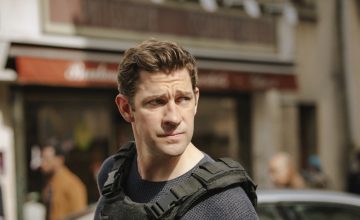Content warning: violence
A recent sortie of presidential candidate Leody de Guzman was rocked by violence when five people were shot in broad daylight.
The incident, which happened on Tuesday noon in Quezon town of Bukidnon, wounded at least five persons in civilian clothes—one being a farmer who arranged the event and four members of the Manobo-Pulangihon tribe.
The presidential candidate recounted the incident, saying that people had placed white flags on the field as a sign that their activities were intended to be peaceful. One man then fired a shot, which hit organizer Nanie Abela who stood close by De Guzman.
The Philippine National Police (PNP), however, considers it too “premature” to tell if the shooting was election-motivated. In De Guzman’s case, the candidate believes that the target wasn’t actually him, but the tribe members.
Salamat sa mga nag-alala. Ako po at sila kasamang Roy Cabonegro at David D'angelo ay ligtas.
Ang tinamaan ay ang nasa tabi ko, si Nanie Abela, na organizer ng mga magsasaka sa Mindanao. Casualty rin ang isang lider ng tribong Manobo-Pulangiyon.
— Ka Leody de Guzman (@LeodyManggagawa) April 19, 2022
Considering motives outside of the elections, the shooting is another incident that has threatened Indigenous people’s safety, especially with their fight for ancestral lands. The sortie in question had happened as De Guzman, his team, and the tribe members were on a plantation, which the Manobo-Pulangihon tribe claims is part of their ancestral domain.
The tribe members were allegedly driven out of the area in 2017. Since then, 1,000 displaced families have settled on the roadsides of Bukidnon, with some living in makeshift shelters.
During the shooting incident, De Guzman recalled that the soldiers in the vicinity didn’t do anything.
“What’s painful is that there were soldiers on the highway, not more than half a kilometer away,” De Guzman said upon arrival in Manila. “The shots could really be heard. But they did not rush over to stop the one firing. They just stayed there.”
Meanwhile, the PNP mentions that the standstill in the investigation was because De Guzman’s camp didn’t have “proper coordination with the authorities” about their visit to the property.
“It is important that [candidates’] activities are coordinated with the PNP so we can provide security assistance and prevent any form of violence,” PNP’s public information office chief Brig. Gen. Roderick Augustus Alba said in a statement.
Presidential candidate “Ka Leody” de Guzman said he would file charges against those responsible for shooting at him, his party mates and supporters who were visiting an indigenous peoples community in Quezon town, Bukidnon, last Tuesday.
READ: https://t.co/Ws2QAMo5Yk pic.twitter.com/2CXEw3aepQ
— Inquirer (@inquirerdotnet) April 21, 2022
But De Guzman asserted that authorities were already aware of their visit—the reason for the soldiers and policemen stationed near the area.
The PNP has since then started investigations on the property’s private guards, including their weapons. But beyond this specific case, the tribe—as well as Indigenous people in general—continue to struggle and live amid threats. In 2017, Renato Anglao, a Lumad leader who voiced opposition against the expansion of plantations, was killed by motorcycle-riding men during an errand run. Years before that, the Lumad—including children—had already been subjected to harassment, displacement, and killings.
The tribe has expressed their unwavering commitment to their ancestral lands, but it shouldn’t reach a point where the response they get is violence spanning generations. If the soldiers truly just stood there and watched, then it’s a glaring wake-up call that we must continue to demand authorities take action against these acts of violence—something which has long been warranted.
Read more:
This is what Indigenous people have been facing, pre-Anti-Terrorism Act
Activists, farmers, and IPs are still getting killed at a disturbing rate
The Lumad youth just want to go home, but violence won’t let them
Photos from Inquirer.net
Header art by Yel Sayo
























Comments